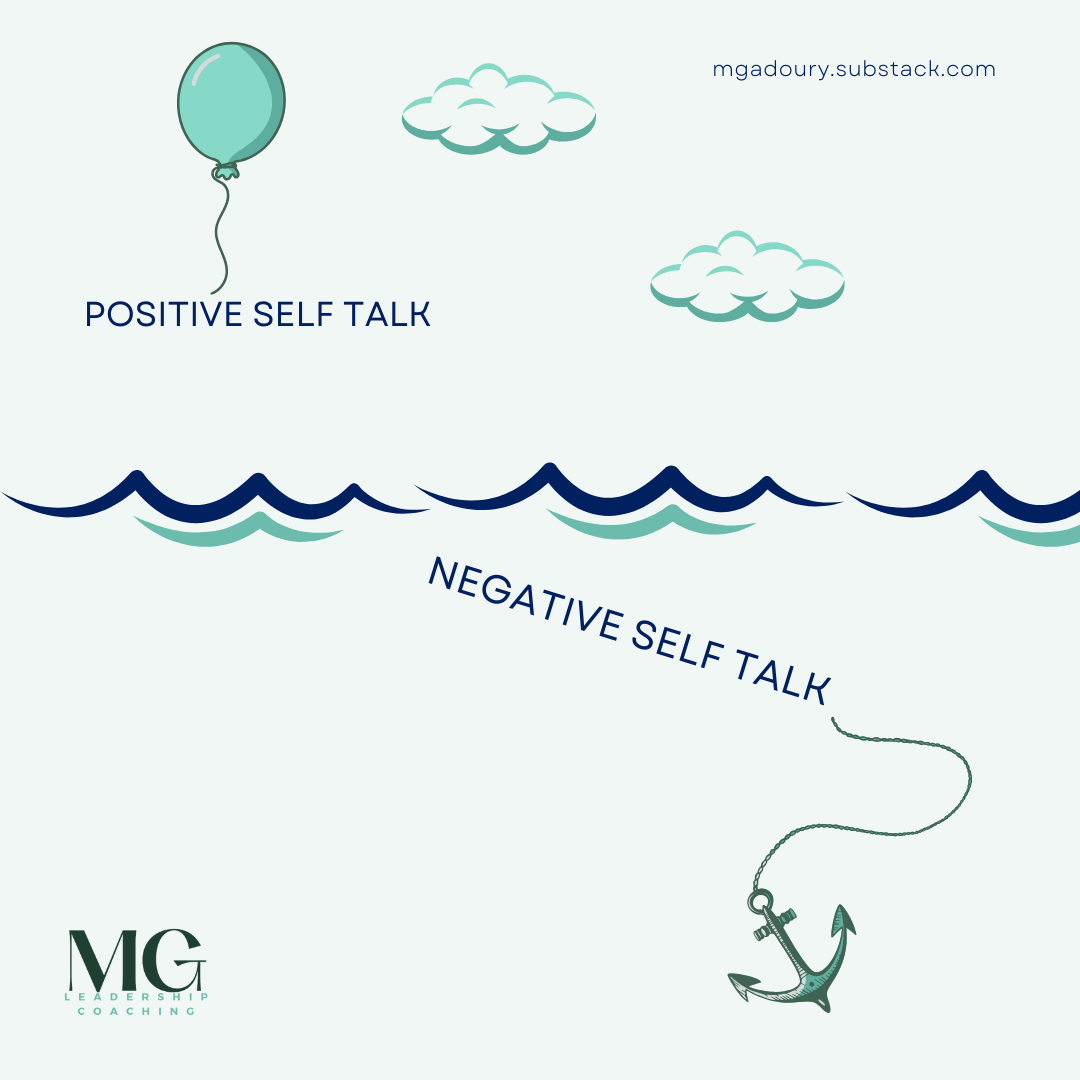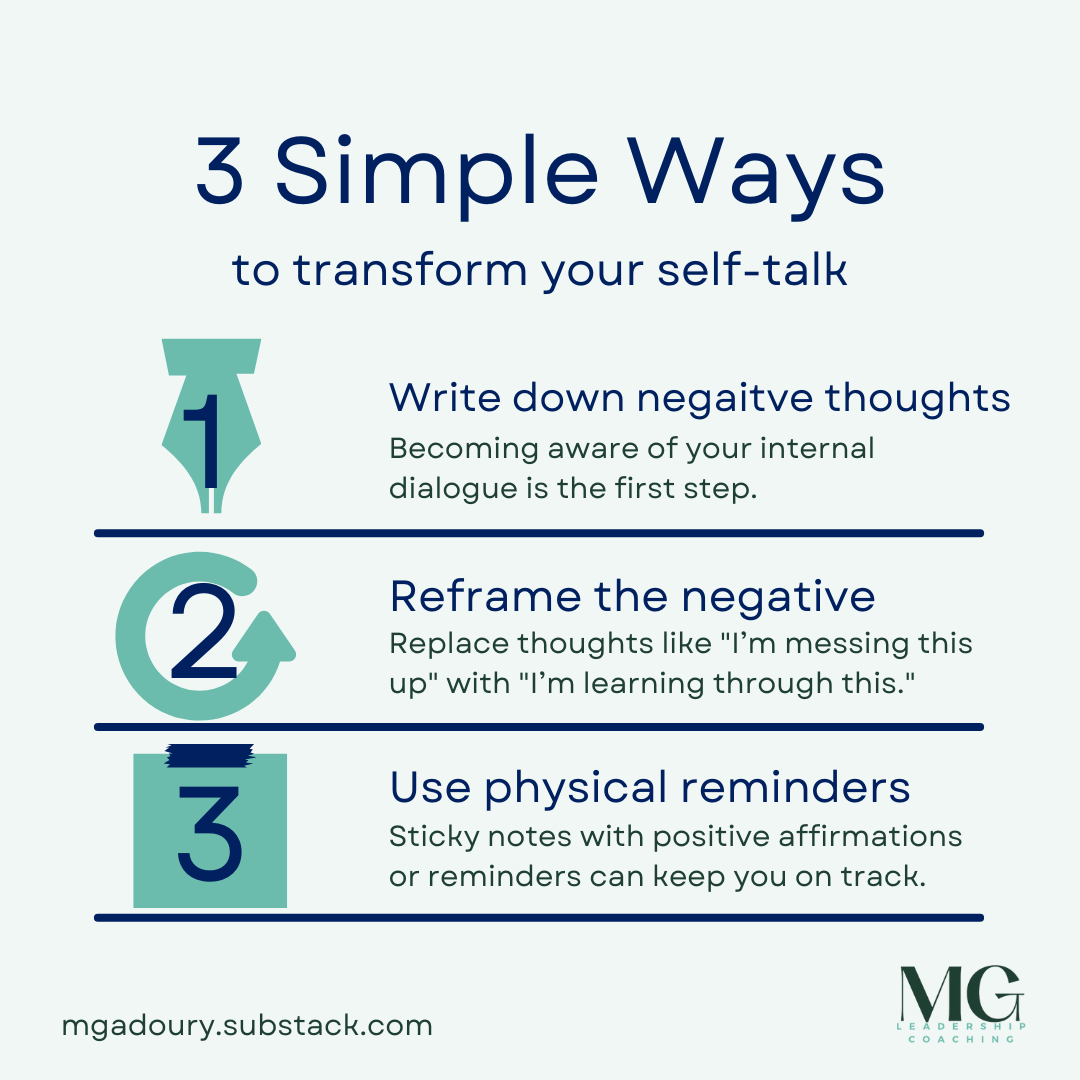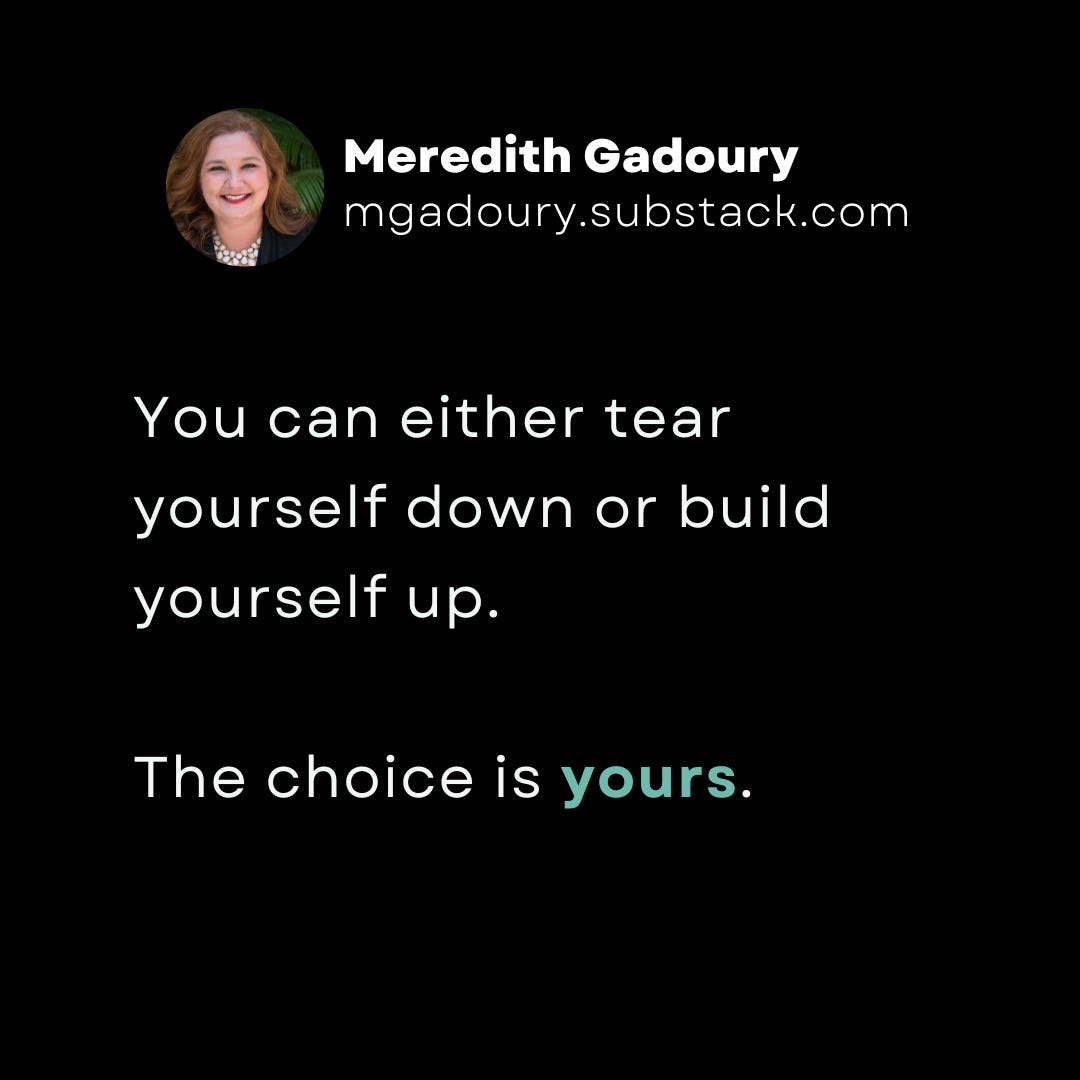Welcome to The Evolving Leader's Guide. Each week, I share one mindset, framework, or toolkit designed to help you become a more effective leader—so you can lead with confidence, inspire your team, and build a career you’re proud of.
This week's tool: The Art of Saying No
There’s a clip of Stephen Colbert interviewing Steph Curry that caught my attention.
It wasn’t the typical sports interview about stats or plays. It was about mindset.
Colbert asked Curry a question that many of us struggle with: “What do you do to get your head in the game when you aren’t firing on all cylinders?”
Curry’s answer? “Lots of positive self-talk.”
It seems simple, but let’s pause for a moment.
When things aren’t going well, many of us default to negative self-talk—criticizing ourselves and questioning our abilities.
We mistakenly think that beating ourselves up will push us to perform better.
But the truth is positive self-talk is far more effective.
This week, I’ll explore the limiting belief that being hard on ourselves is the key to success and how changing our internal dialogue to be more positive can lead to better performance and well-being.
The default: negative self-talk
When you’re not at your best, what’s your internal dialogue like?
If you’re like most people, it’s not particularly kind. The usual narrative is some version of “You’ve got to do more,” “You should be better,” or “You’re failing at this.”
It’s the voice of negativity.
I still fall victim to negative self-talk. A few weeks ago, I had a facilitation that went poorly.
I got off the call feeling like I had completely failed as a coach. I had only covered a third of the material, I didn't have the impact I intended, and my client seemed more stuck than when we began.
My immediate reaction was harsh: I thought I had failed my client, and by extension, I was a failure as a coach. I wanted to beat myself up, thinking it would push me to perform better next time.
But then I caught myself. I reminded myself that one bad session doesn’t define me. I know I provide value for my clients, even if this session didn’t go as planned.
So, instead of dwelling on it, I chose to change the narrative. I focused on what I could learn from the experience.
Facing those thoughts head-on allowed me to have an honest conversation with my client. I admitted that it wasn't as impactful of a session as I had hoped, and we discussed what was needed moving forward.
That open conversation not only increased my client’s confidence in me as a coach but also led them to want to continue working with me.
The impact of negative self-talk
That shift in self-talk didn’t erase what happened, but it did help me move forward in a healthier way.
This experience made me realize how often we rely on negative self-talk, believing it will push us to improve.
In reality, it's like trying to run a race with an anchor tied to your ankle.
Each negative comment weighs you down, like dragging yourself forward with an anchor tied to your ankle. Eventually, you’ll burn out.
Not only that, but research shows negative self-talk can actually be harmful. It increases stress and anxiety, ultimately hindering our ability to perform at our best.
It triggers the brain's stress response, making us feel anxious and overwhelmed. This stress makes it harder to solve problems and focus on what needs to be done.
Positive self-talk, on the other hand, reduces stress and boosts motivation; helping us feel more capable and improving our performance.
The switch: positive self-talk
What’s fascinating about Curry’s response is how unique it feels.
When things aren’t going well, our knee-jerk reaction is to pile on the criticism.
Curry, however, flips the script. He says, “I know it’s going to come.”
That’s not wishful thinking. It’s confidence rooted in knowing his own capability.
Positive self-talk isn’t about ignoring mistakes or pretending everything’s fine.
It's about reinforcing your belief that you’re capable of working through challenges. Telling yourself, “I can handle this,” instead of “I’m messing this up.”
As Glennon Doyle says in Untamed: "These things will be hard to do, but you can do hard things."
When Curry says, “I know it’s going to come,” he’s not just passively waiting for things to change.
He’s strengthening his belief that the skills are there, the mindset is right, and eventually, the performance will align.
It’s a powerful reminder that setbacks are temporary, not a reflection of who we are.
Why positive self-talk works
Positive self-talk is effective because your brain listens to what you tell it.
If you’re constantly feeding it negativity, it reinforces those beliefs.
But if you consciously choose to feed it positive thoughts, it starts believing those too.
It’s like training a muscle.
You don’t get strong by lifting a heavy weight once. You build strength by repetition.
The same goes for your mindset.
Consistent positive self-talk builds resilience. It boosts confidence and sharpens focus.
Over time, it becomes a habit, transforming how you navigate tough moments.
The choice we make
The reality is that we all have the choice to decide how we talk to ourselves.
You can either tear yourself down or build yourself up. You can believe that setbacks define you, or you can believe, like Curry, that they’re just part of the process.
The next time you feel like you’re falling short, take a page out of Curry’s playbook.
Instead of the usual, “You’re messing this up,” try, “You’ve got this.”
Or when you feel stuck, shift from “This isn’t working” to “I’ll figure it out.”
It’s not about ignoring reality—it’s about approaching it with the belief that you have what it takes to improve.
Just like Curry knew his shot was going to come back, you can trust that your best self is still there, ready to show up.
The Coach's Challenge
Here’s my challenge for you: For the next week, pay attention to how you talk to yourself when things aren’t going well.
Catch those negative thoughts. Write them down, and then deliberately replace them with positive ones.
You could also set reminders throughout the day or use sticky notes with positive affirmations to keep yourself on track.
Notice how it changes not only how you feel, but how you perform.
In the end, your performance doesn’t just depend on your skills.
It depends on your belief that those skills will shine through, even on the tough days.
Positive self-talk is simple, but it’s powerful. And just like Curry, you’ll know—you’ve got this.





